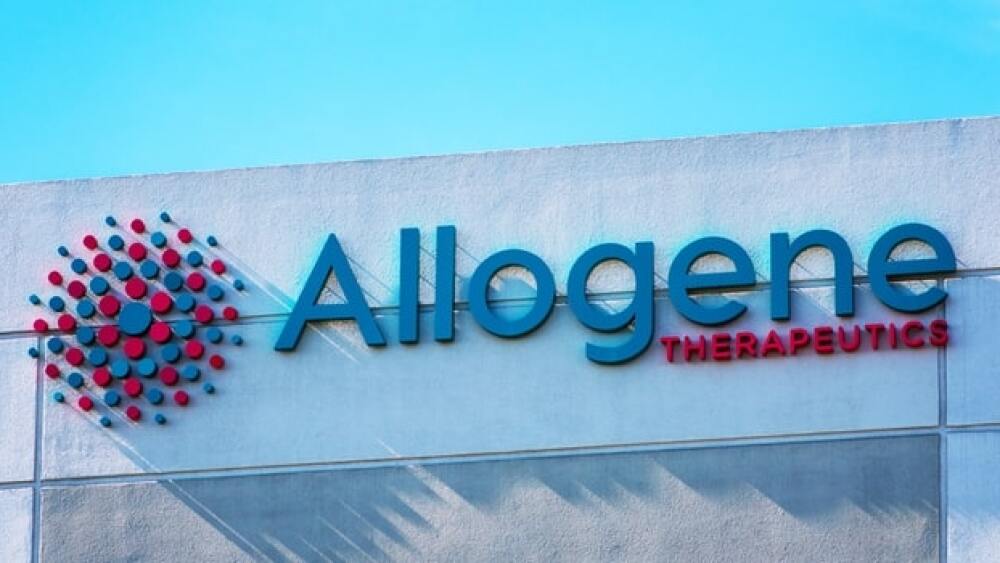Allogene Therapeutics is launching what it calls the first pivotal Phase II trial of an allogeneic CAR T product in the industry. The ALPHA2 trial will evaluate ALLO-501A in LBCL.
Courtesy of Michael Vi/Getty Images
Allogene Therapeutics is launching what it calls the first pivotal Phase II trial of an allogeneic CAR T product in the industry.
The ALPHA2 trial will evaluate ALLO-501A in relapsed/refractory large B-cell lymphoma (LBCL). In addition to the ALPHA2 trial, the company is working to initiate the EXPAND trial to evaluate the effects of ALLO-647 when added to the standard fludarabine/cyclophosphamide lymphodepletion treatment regimen.
Allogene is attempting to develop an allogeneic CAR T therapy, sometimes referred to as “off-the-shelf.” One of the downsides of autologous cell therapies is they are labor-intensive, time-consuming and expensive.
In contrast, an allogeneic CAR T product draws on a variety of healthy donors’ T-cells, which are then engineered to express CARs, then further engineered to decrease the risk of graft-vs-host disease (GVHD) and allogeneic rejection. The product can be stored “off the shelf” for use as needed.
David Chang, M.D., Ph.D., president, CEO and co-founder of Allogene, said of the trial, “It is a culmination of years of hard work and perseverance.”
A Rocky Road for Allogene
It has not been a particularly smooth road for Allogene. In October 2021, the company halted the clinical trials of ALLO-501A after finding a chromosomal abnormality in a study patient. The company had dosed more than 100 patients with ALLO-501A.
The patient was diagnosed with Stage IV transformed follicular lymphoma and c-myc rearrangement whose cancer was unresponsive to two previous lines of immune chemotherapy and additional radiotherapy. The clinical hold was applied to all five of Allogene’s AlloCAR T clinical trials.
The FDA lifted the clinical hold in January 2022. Studies of the chromosomal abnormality determined it was unrelated to Allogene’s TALEN gene editing or its manufacturing process.
The Phase II ALPHA trial will use a single dose of ALLO-501A at 120 million CAR+ cells with a lymphodepletion treatment (FCA90) made up of fludarabine and cyclophosphamide plus ALLO-647. There are some concerns over safety.
In earlier trials of non-Hodgkin’s lymphoma (NHL), about 86% of patients reported a grade 3 or worse adverse event compared to 71% in the 60mg-dose cohort. The higher dose was also linked to higher rates of bacterial or viral infections.
But the trials also associated higher ALLO-647 treatment with better and longer lymphodepletion and higher IL-15 levels. As a result, Allogene picked a 90mg dose.
In June, the FDA granted ALLO-501A Regenerative Medicine Advanced Therapy (RMAT) designation for r/r LBCL. This designation supports the need for an off-the-shelf CAR T product, “that can be delivered faster, more reliably, and at greater scale,” Rafael Amado, M.D., EVP of research and development and CMO of Allogene said at the time.
Allogene also received the green light from the FDA to utilize newly manufactured products from its Cell Forge 1 manufacturing facility that doesn’t use the Alloy process yet. It’s in the process of implementing Alloy in the new facility.
However, the Phase II study will launch with previously manufactured material with plans to implement Alloy products at the facility during the ALPHA2 and EXPAND trials.
ALLO-501A is engineered to recognize CD19, a cell-surface protein expressed on B-cells, including cancerous B-cells. A T-cell receptor gene is knocked out to limit the likelihood of GVHD. The CD52 gene is knocked out to make it resistant to anti-CD52 antibody treatment.
The company’s ALLO-647, which will be evaluated in the EXPAND trial, is an investigational anti-CD52 monoclonal antibody engineered to suppress the host immune system. This is meant to help the AlloCAR T product stay engrafted to improve therapeutic benefit.





